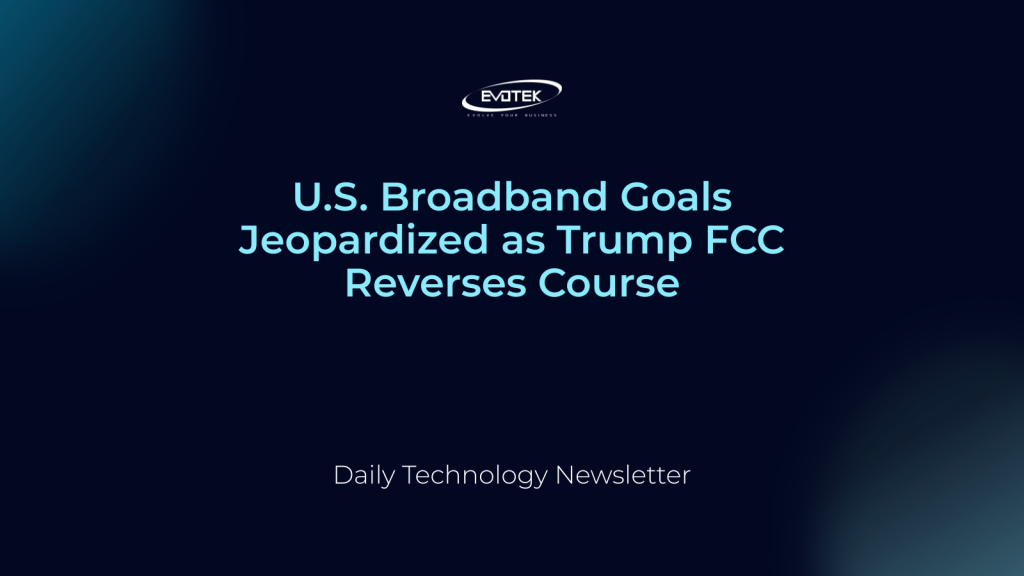For decades, Section 706 of the Telecom Act has mandated that the Federal Communications Commission (FCC) assess whether broadband internet access is being deployed “on a reasonable and timely basis” nationwide. Should deployment fall short, the law directs the FCC to “take immediate action to accelerate deployment… by removing barriers to infrastructure investment and by promoting competition in the telecommunications market.”
Historically, the FCC has struggled to fulfill this crucial mandate. A landscape of regulatory capture and industry consolidation has allowed a handful of powerful regional telecom monopolies to dominate the U.S. broadband sector. These giants face little pressure to expand access, lower prices, or improve internet speeds, leading to a system that is often expensive and inefficient for consumers.
Under the previous Biden administration, the FCC made some modest advancements. Last year, the definition of broadband was updated to a minimum of 100 Mbps downstream and 10 Mbps upstream, with gigabit access set as a future objective. The Biden FCC also pledged to investigate the persistently high cost of internet services in the United States.
However, the Trump administration is now moving to undo these efforts. Trump FCC boss Brendan Carr has controversially claimed that setting meaningful standards for broadband speed and ensuring its affordability are “extraneous” matters. To justify this stance, he references the recent Loper Bright Supreme Court ruling, which limits federal agencies’ authority to interpret ambiguous laws. Carr’s proposal asserts that, in light of this ruling, the agency must “strictly adhere to the statutory text.”
Critics argue that this position demonstrates a fundamental inconsistency in the Trump FCC’s approach. While Carr seeks to curtail the agency’s power in consumer protection, he has simultaneously attempted to wield extensive FCC authority in other areas, often seemingly to serve specific political or corporate interests. This selective application of authority raises concerns about the agency’s true objectives.
The implications of this shift are significant. The primary agenda of the second Trump presidency, beyond its other aims, appears to be the dismantling of federal consumer protection, regulatory independence, and corporate oversight. For large corporations and billionaires, this direction is highly favorable. However, for everyday American citizens concerned with fundamental issues like labor rights, clean water, or equitable and affordable broadband access, the situation poses serious challenges.
Major telecom companies, including Comcast, AT&T, and Verizon, stand to benefit immensely from a federal government that rubber-stamps their mergers and ignores the detrimental effects of market consolidation and failures. While U.S. regulators have long been criticized for their leniency, the current trajectory threatens to exacerbate existing issues of regulatory capture and industry corruption to an unprecedented degree.
The long-term damage to federal consumer protections and corporate oversight could reverberate for decades, potentially becoming a permanent legacy. Even in a hypothetical scenario where more consumer-friendly policies are pursued in the future, restoring meaningful oversight of powerful companies—especially those deeply integrated into domestic surveillance networks—would be a monumental task in an increasingly polarized and compromised political and legal system.
A truly proactive FCC could implement numerous measures to enhance broadband access. This includes directly confronting monopoly power, actively supporting municipal broadband initiatives and local cooperatives, imposing stringent penalties for service quality and privacy violations, and establishing and enforcing consistent standards to demand better performance from dominant regional monopolies. Yet, the current administration continues to prioritize the interests of powerful telecom monopolies, often to the detriment of American consumers.

 日本語
日本語 한국어
한국어 Tiếng Việt
Tiếng Việt 简体中文
简体中文